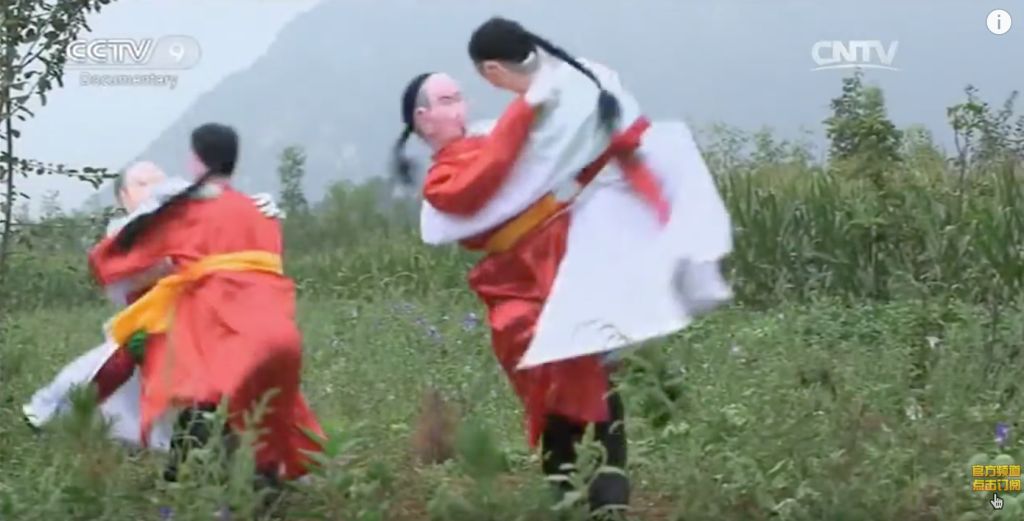
In the last episode of the Heretics podcast we talked about Chinese wrestling – Shuai Jiao – but Damon also mentioned Manchu wrestling quite a bit. He described it, but you can’t get a proper idea of how it works without seeing it done, so let’s look a little closer.

Manchu wrestling is a unique form of puppetry popular in certain parts of China where the participant wears a life-sized puppet of two wrestlers in a costume that turns ther legs and arms into both the puppet’s legs. Various wrestling maneuvers are then performed. The skill is to make it look like the two puppets are really wrestling and pulling off moves on each other.
To a western martial artist interested in only “learning how to defend myself” this might all look a bit silly, but if you watch this documentary you’ll see that there’s quite a lot to it:
There are so many things here worthy of note.
- Firstly, the connection between puppetry and Chinese martial art is ripe for research – I’m thinking of the other famous puppet show that martial artists are known for – Lion and Dragon dancing. These cultural and religious practices are still done by martial arts groups at demonstrations and festivals.

- Everybody in the Manchu wrestling documentary calls it “wrestling” even though it’s a solo drill. They don’t call it a dance or puppetry. To them this is “wrestling”, but we’d never call it that in Britain, for example – I find that pretty interesting.
- It’s a damn good work out. If you’ve ever done any BJJ floor drills where you walk around on your hands and feet you’ll know that it’s instantly exhausting. Manchu wrestling will get you fit! If you don’t believe me then have a go at some of these drills before you tell me I’m wrong:
- Manchu wrestling actually looks pretty dangerous – you can easily break a wrist with the high-speed spinning they’re doing, especially if the stick you hold in the shoe breaks.
- Mental health benefits: a part of the documentary is focused on the mental health benefits of Manchu wrestling, especially looking at its life-changing benefits for rural Chinese women whose lives seem to be reduced to raising children and farming. I found this interesting in light of how much mental health benefits are talked about in BJJ culture – “BJJ saved my life” is a commonly used phrase amongst gym rats. Perhaps there is something inherently therapeutic about any style of wrestling movements and the human body?






